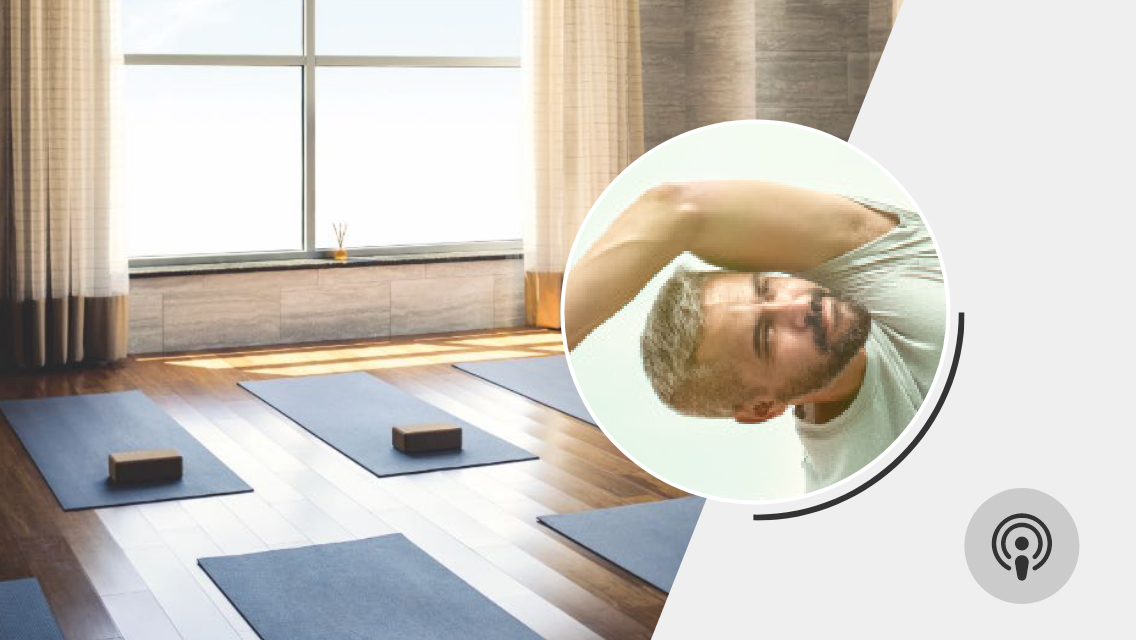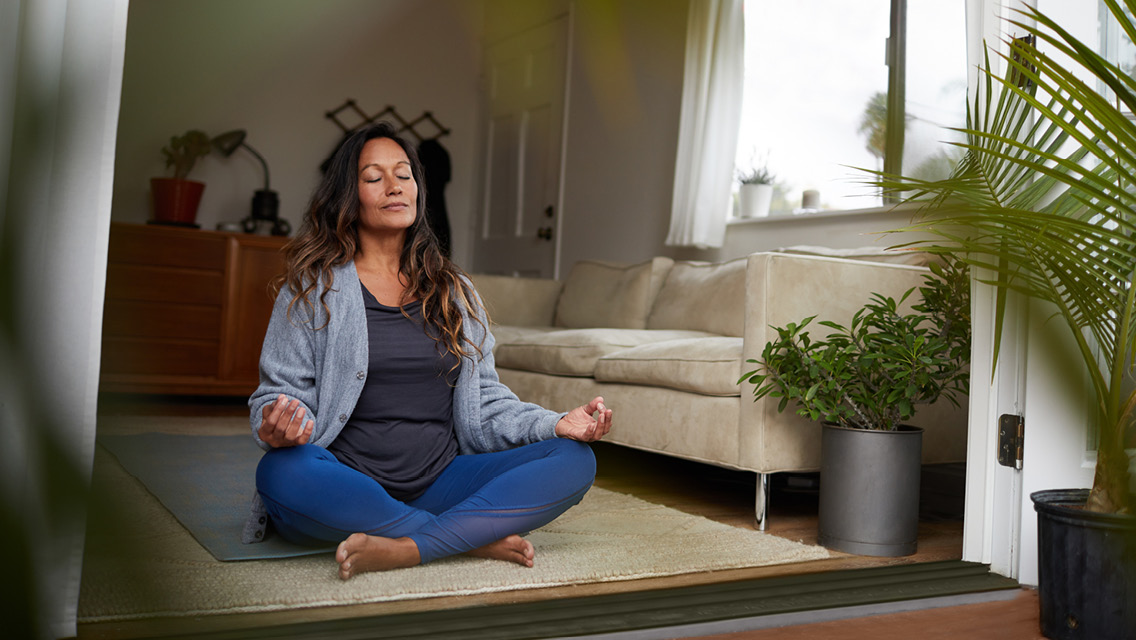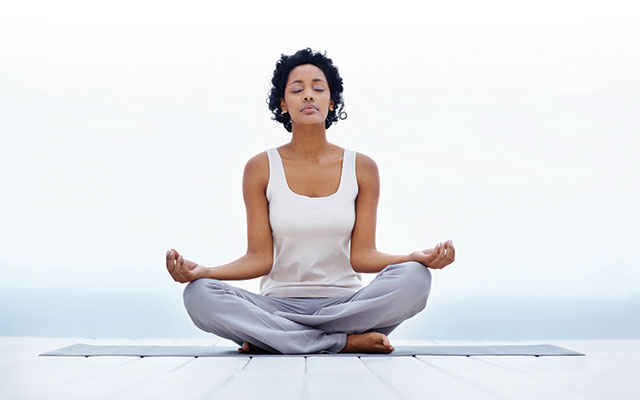Many experts agree that a daily meditation practice can provide significant benefits for both mental and physical health. But as humans, not every day is the same, and it may feel right — and practical — to cater your practice to what you’re feeling on a given day.
“Meditation isn’t about getting rid of an emotion,” says Tory Shaefer, director of national yoga operations and guided meditation instructor for Life Time. “It’s about letting feelings arise, acknowledging them, and learning to let them go.
“Your mood is often a result of your unconscious mind attaching to a narrative you’ve created about something in the past or something coming up in the future. Learning to meditate is learning to observe the narrative without attachment. When you let go of attachment, the unconscious mind is no longer in control of your emotional state.”
Meditation is an ancient practice with hundreds of techniques from various traditions and cultures. Personal preference can help you choose the types that work for you, and one place to start is with an exercise best suited for your current emotional state.
Shaefer offers guidance for the types of meditations to look for depending on various moods and shares the specific meditations he’d turn to for each from the Life Time Digital app.
When You’re Feeling Anxious or Stressed
“Meditation provides time and space to observe your state of stress or anxiousness and choose how best to deal with your feelings in that moment,” says Schaefer. “Maybe you need to do a breathing exercise, remove yourself from your current environment, or seek external support — taking a pause will help you figure out what you need.”
If you’re feeling anxious or stressed during the day, try a guided breathing exercise or calming meditation. If those feelings arise when you’re trying to sleep, look for a guided meditation designed to help you wind down and clear your mind.
Schaefer’s recommendation for daytime: Power of Breathing by Anthony C.
Schaefer’s recommendation for sleep: Count Down by Dana M.
When You’re Feeling Angry
“There is a bio-chemical reaction that happens in the body when you’re facing frustration,” Schaefer explains. “Your body heats up and your breath becomes shallow. When you meditate, you can catch onto these bodily cues quicker, which gives you the ability to choose to give into your anger reaction or pause and walk away.”
If you’re experiencing those anger cues, try a calming meditation or breathing exercise. This provides you time to become more aware of your feelings and respond from a calmer, more collected place.
Schaefer’s recommendation: Rolling the Tension Away by Omaur B.
When You’re Feeling Nervous
“Svadhyaya, or self study, is a yogic practice that occurs naturally when we meditate. We learn about the stories our mind likes to attach to and how we talk to ourselves,” says Schaefer. “The more you practice meditation and learn about yourself, the more you experience self-love. You’ll find the courage to stand in your life’s purpose and all else, including nervousness, fades away.”
If you’re just starting out with meditation to calm your nerves, try breathing deeply and repeating a mantra that helps you feel confident.
Schaefer’s recommendation: Vision to Achieve by Tory S.
When You’re Feeling Sad
“Sadness, like any emotion, stems from the current moment or an attachment to a previous happening. Meditation allows you to wake up and realize which one you are in,” says Shaefer. “If it’s sadness in the moment, meditation helps you you to sit with the sadness and recognize it. If you’re experiencing sadness from a previous attachment, meditation will help you untie yourself so you can come back to the present moment.”
If you’re feeling sad, try a guided mediation designed to help you create space between your thoughts and your actual self. As feelings come up, note them, and allow the meditation to guide you back to the present moment.
Schaefer’s recommendation: Calm Within the Storm by Omaur B.
When You’re Feeling Excited or Happy
“A dedicated meditation practice allows you to truly love the moments you live and embrace exciting or exhilarating times without letting them overrun you,” says Shaefer. “A meditator doesn’t need to chase excitement. They simply live it and enjoy the moment and accept it as it is.
“When you’re feeling good — and even when you’re not — a gratitude meditation allows you to focus on what you love or are happy about within yourself, in your community, and in the world. May all beings be happy and be free,” Shaefer adds.
Schaefer’s recommendation: Live With Gratitude by Lindsay L.
When You’re Feeling Restless
Meditation doesn’t have to mean sitting pretzel-style on the floor — it takes many forms. If you find it difficult to be still, a simple walk can count as meditating.
“Mindful movement is amazingly good for the soul,” says Shaefer. “Experience every step, sound, and smell on your walk. Make time for yoga, tai chi, or simply turn up the music and dance in your kitchen. This is a must for everyone, every day!”
Schaefer’s recommendation: Breath and Movement by Anthony C.
To find the above recommended meditations for your moods — or others that may be right for you — visit the library of guided meditations available in the Life Time Digital app here.
If you’re not yet a Life Time member, you have the option to join as a Life Time Digital member and gain access to the entire meditation library.





